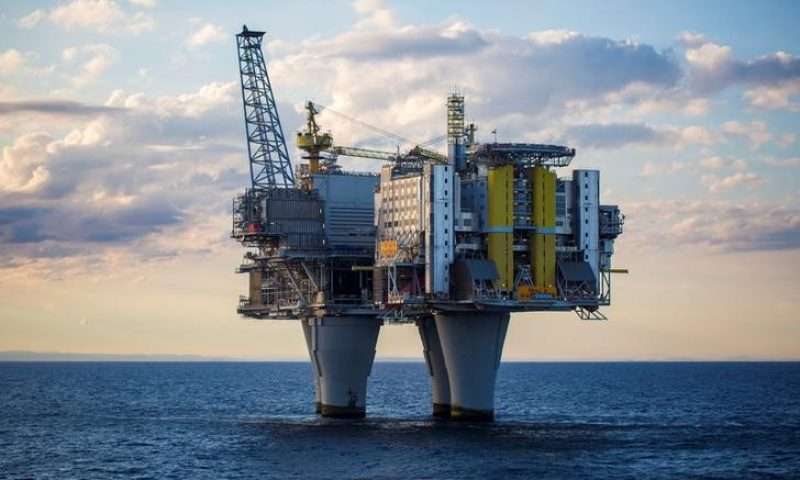West Africa-focused oil producer, Tullow Oil, has raised its 2022 free cash flow guidance to US$267 million, slightly ahead of previous guidance and up from US$245 million the previous year.
Finance Chief Richard Miller indicated that this year’s cash flow would be impacted by higher capital spending, some of which is deferred from 2022, and decommissioning costs, which are two factors that will weigh much less on cash flow from 2024.
According to the Finance Chief, the company plans to invest US$400 million this year, 2023 mainly on its flagship fields in Ghana, expecting free cash flow to come in at US$100 million at an oil price of US$80 a barrel, or twice that at US$100 a barrel. “Capital expenditure for the current year will be around $400 million, and around $300 million of this will be in Ghana, with around $90 million in decommissioning spend in the U.K. and Mauritania,” he said.
Richard Miller disclosed that cost cuts and a focus on its fields in Ghana led Tullow to forecast US$700-US$800 million in free cash flow for the 2024-2025 period, at an oil price of US$80 a barrel.
The oil-and-gas company said revenue will be around $1.7 billion compared with a reported revenue of $1.27 billion for 2021.
Ghana Tax Looms
Tullow faces a 2023 group cash tax bill of at least US$300 million at an oil price of US$80 a barrel, up from US$230 million last year, as tax incentives in Ghana are running out, a company spokesperson said.
The company also believes some of Ghana’s historic tax “assessments are without merit” and is engaging with Ghana’s government to resolve the dispute, Tullow said in its trading update. Meanwhile, Ghana has to restructure its mountain of debt to access a relief package from the International Monetary Fund. As such, the country is exploring every available means of revenue to meet its debt obligations.
Tullow hedged 33,100 barrels per day (bpd) of this year’s output and 11,300 bpd of 2024’s production at between US$55 and US$75 a barrel. After hedging, Tullow achieved an average of US$87 per barrel in 2022, it said. This year it expects to produce between 58,000 and 64,000 bpd, broadly in line with 2022.
Net debt at Tullow, which has a market capitalization of around US$648 million, went down to US$1.9 billion at the end of 2022. The company revealed that it is due to report full-year results on 8th March, 2023.

Ahead of the full-year report, the company said it has recorded strong operational delivery, rigorous focus on costs and capital discipline, the increased equity in our key operated fields in Ghana and higher oil prices drove material, expectation-beating free cash flow generation in 2022, accelerating the Group’s deleveraging towards a net debt to EBITDAX ratio of 1.3 times by the year-end.
“In 2023, we expect Jubilee production to exceed 100 kbopd once the new wells drilled in the southeast of the field are brought on stream. Our capital investment this year, in particular in Ghana, is expected to support production growth through to 2025 and material free cash flow generation.”
Tullow Oil
The oil and gas company disclosed that production from the Jubilee field averaged 83.6 kbopd (31.9 kbopd net) in 2022. A good operational efficiency of c.97% was achieved and production was supported by four new wells (one producer and three water injectors) brought online in early 2022. It added that two wells were drilled in the Jubilee South East area in the second half of 2022 and a third well is currently being drilled.
Tullow Oil stated that primary target reservoir results are in line with expectations with some deeper reservoirs also penetrated that have encountered additional resources for future potential development.
“These wells will commence production in the second half of the year after the installation and tie-in to the Jubilee South East Project sub-sea infrastructure, scheduled for the middle of the year, in line with the initial project schedule. The completion of the Jubilee South East Project will mark the completion of the major infrastructure spending in the Jubilee area. The majority of future capex is expected to be focussed on drilling and completing new wells.”
Tullow Oil






















